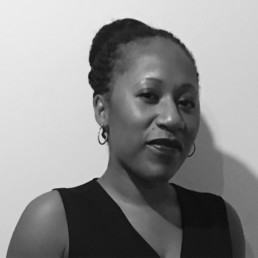
Written by Jenetta Hurst
Music specialist with 15 years’ experience working in secondary schools in a range of settings. Currently Head of Department for Music
Does the voice of Black women exist in the literature on school leadership in England?
Whilst completing my MA in Leadership, I was astounded by the lack of female Black voices presented to me as recommended reading in the literature. By contrast, it was exciting, refreshing and unusual to have a module jointly facilitated by a Black female Professor and a White female Professor. Nonetheless, this apparent lack of representation in the literature led me to engage in conversations with an experienced and successful Black female head teacher to enquire as to why she had not yet penned a book on school leadership.
I encouraged her to please go ahead and write a book, my feeling being that there was a voice and perspective missing from the discourse. Even for me as a thirty-something mid-career professional, the lack of representation had an impact. I couldn’t see myself in the literature on school leadership in England.
Through my own research and further guidance from my course lecturers I was inspired as I began to discover contributions from Allana Gay (2017), as well as several contributions from Black males in academia such as the esteemed Professor Paul Miller. These contributions refined my thinking academically and more so, my understanding of some of my experiences as a Black female school leader in England, my country of birth, and my home.
The global response to the untimely death of George Floyd in Minneapolis in the spring of 2020 led to the increased amplification of key voices on the importance of diversity in education. Observing and engaging in discussions and online training some three years after my initial studies had begun, highlighted to me the extensive research, knowledge and insight of those who had long been flying the flag for diversity of school staffing and leadership, both in the U.K. and globally.
Under-representation of Black school leaders in England
On the Leading in Diverse Cultures and Communities module of my MA, I spent hours digesting data and reading about the experiences of predominantly male Black school leaders in the UK and USA. I carefully considered the importance of place and identity for students in school communities (Riley, 2016) and was hit with the stark reality that at the time of writing, the most up to date data reflected that a mere 2.3% (gov.uk) of head teachers in the UK were of Black and minority ethnic backgrounds. Looking forwards another three years, we see that alarmingly, this figure has increased to just 3.3% (gov.uk).
My concerns remain the same:
- What about retention of Black, Asian and minority ethnic teachers and leaders?
- What about the impact of the lack of representation upon students who, I can say having walked in the role of a middle and senior leader myself, are inspired and energised by seeing teachers working in senior roles, who look like them and may share in their own culture?
- What about the opportunity for Black, Asian and minority ethnic teachers and leaders impacting the school community in a broader way than their classroom, year team or department?
- What about personal levels of motivation and stimulation in the workplace?
As I continue my teaching and leadership journey, I am reminded of the countless positive role models that have featured in my life, both female and male. Individuals of influence who are of course, to be respected for their own perseverance and dedication in their chosen fields. Educators, school leaders, community leaders, sportsmen, civil servants, college Professors and pharmacists, to mention but a few. I count myself as being very blessed to have always had those who have gone before me, to look up to.
Creating an educational landscape where everyone can grow and everyone can benefit
We need to see representation of all marginalised and minority groups to ensure that every child, aspiring teacher, school leader, school Governor and every aspiring academic sees themselves in society. As a musician and music educator, I hope in the future to see an increase in the number of teachers and leaders of music who represent the diverse communities that they serve. I hope for more young role models from all communities to come forwards to pave the way for future generations, ensuring that together everyone can grow and everyone can benefit.
In the week that we celebrate representation in the highest office of Madam Vice President-elect of the USA, Kamala Harris, a self-identifying Black and South Asian-American female (cnbc.com) we remember that excellence begets excellence. And so I encourage us all to continue to do our best, to go out and be the change that we wish to see.
References:
Feiner, L. (https://www.cnbc.com/2020/11/07/kamala-harris-elected-vice-president.html last accessed 10th November 2020.
Gay, A. What does a school leader look like? SecEd. 1st March 2017, http://www.sec-ed.co.uk/best-practice/what-does-a-school-leader-look-like/ last accessed 10th November 2020.
Riley, K. (2016) The Art of Possibilities. (https://m.youtube.com/watch?feature=youth.be&v=wjzdwlHSBRA last accessed 10th November 2020.
Jenetta Hurst is a music specialist with 15 years’ experience working in secondary schools in a range of settings. Jenetta is currently Head of Department for Music in a large secondary school in East London, and is a former senior leader. Jenetta’s interests are staff development, CPDL, ITT and teacher induction and she graduated from UCL Institute of Education with the MA Leadership in 2019. Jenetta is also an Honorary Member of the Birmingham Conservatoire.

